Cashing in on the global tropical fruits boom
Increasing competitiveness and adding value to Andean fruits production in Colombia EspañolYou may not know Colombia for its fruits, but the country is the fifth largest fruit producer in Latin America, with a startling 95 varieties of fruits that are commercially grown. The value of Colombian fruit exports to the EU increased from US$35.2 to 62 million between 2010 and 2015 – and the boom is not over. While only one third of Colombians eat fruits every day, aware consumers in Europe are increasingly demanding products perceived as healthy such as fruits. Today, Colombia exports 90% of its fruit production, with export prices that are up to six times higher than those on the domestic market. This represents an important opportunity for smallholder farmers who are responsible for more than 85% of the country’s agricultural production – especially as Colombia is weighing its alternatives in the post-conflict era.

%
Colombia exports 90% of its fruit production

The competitiveness of the fruit sector in Colombia, however, can be greatly improved by promoting, for instance, sub products or higher-value products based on fruits such as fruit bars or powder.
AN INTEGRATED APPROACH TO FRUIT VALUE CHAIN
The project Platform model for integral use, value addition and competitiveness of Andean commercial fruits ran between April 2014 and October 2017 and was aimed at bringing sustainable innovation in the value chains of five Andean fruits: blackberry, lulo, passion fruit, guava, and tamarillo. The project originally involved one local fruit transformation company and its providers, but soon two more companies joined on their own spontaneously to benefit from the project’s activities.
![]() The project was executed by the National University of Colombia headquarters Manizales, in partnership with local company Frugy SA, the Colombian Agricultural Research Corporation (AGROSAVIA), Agricultural Knowledge & Innovation Services (AKIS International-Spain) and the Institute of Research and Technology in Food and Agriculture (IRTA-Spain).
The project was executed by the National University of Colombia headquarters Manizales, in partnership with local company Frugy SA, the Colombian Agricultural Research Corporation (AGROSAVIA), Agricultural Knowledge & Innovation Services (AKIS International-Spain) and the Institute of Research and Technology in Food and Agriculture (IRTA-Spain).

Cashing in on the global organic boom
Carlos Alberto Botero, aka “Don Carlos”, bought Frugy, a small fruit processing factory located in Manizales in the Department of Caldas, in 1994. Back then, Frugy employed no more than seven people and catered to the local market only. Don Carlos recalls with a smile his first experience with exportation. In 1998 he and a few other local entrepreneurs pooled their respective produce in order to fill up a single container en route to the USA. “We had to seal our shipment of blackberries really tight so that they would not taste like the fish that was traveling in the same container!”, Don Carlos laughs.
Today, Frugy employs 58 people and exports three to four containers a month, or about 20 tonnes, to Europe, Chile, Panama, Australia and Guadeloupe. But Frugy’s international clients increasingly request organic fruit pulp and are willing to pay up to 25% more than for the non-organic product.
Unfortunately, the production of organic fruits in Colombia is unable to keep up with the demand. Frugy sources fruits from about 30 providers, including several farmer associations, in a region comprising the south of Antioquia, the North of Tolima, Caldas and Risaralda. At the beginning of the project, none of the producers was certified and analyses revealed that there was room to improve the post-harvest processes.

Today, Frugy employs 58 people – including 6 persons with disability – and exports three to four containers a month.
Promoting more sustainable practices
The excessive use of chemical pesticides is a serious issue in tropical regions where plant pests thrive, and farmers spray all-purpose pesticides in desperate attempts to save their crops. However, by working with farmers to improve their agricultural practices, the project managed to significantly reduce traces of chemicals in fruit pulp.


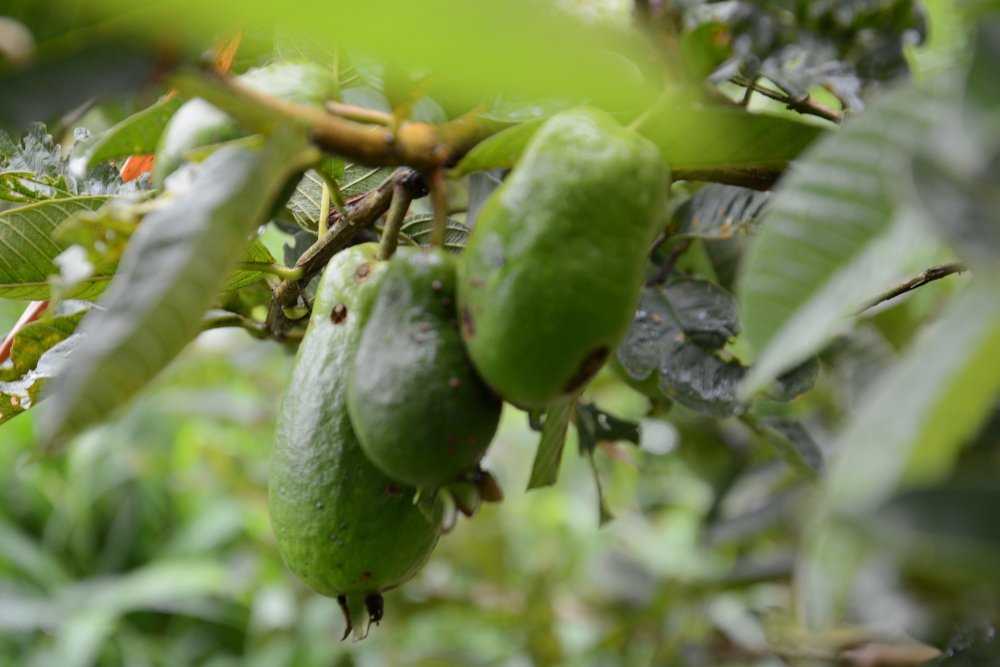
Within two years, the use of biological controls increased by 10 to 40%, resulting in a decrease of pest occurrence of 60% in blackberry, and 80% in lulo and passion fruit.
Although only Don Carlos’ own farm “La Judea” obtained the organic certification, the overall biological quality of all products increased. Thanks to the project, Frugy obtained organic certification for its fruit pulps, reaching new markets in Europe. Today the company manages to source a small 2% of organic fruit while Don Carlos estimates he would need 30% to meet the current demand. However, the number of certified farms needs to increase in order to meet that demand.
Organic certification in Colombia is a very important opportunity to create new markets. A simplified and more affordable certification process and subventions to candidate farms could allow smallholder farmers and fruit processors in Colombia to really cash in on the growing global appetite for organic fruit.
The video below was produced in the framework of the project by the National University of Colombia in Manizales and highlights the importance of organic agriculture.
Social and environmental commitment
The project highlighted the key role of women in the field, in the fruit processing industry and in scientific innovation. Globally, women produce most of the food and represent 43% of the world’s agricultural work. The project has also benefitted from the participation of young scientists and students, as well as apprentices from Colombia’s National Learning Service (SENA), who significantly contributed to the successful implementation of the project and brought a slice of energy and enthusiasm.
This video was produced in the framework of the project by the National University of Colombia in Manizales and highlights the importance of women in the field, in the fruit processing industry and in scientific innovation.
Fruit processing generates large amounts of waste. Frugy, for instance, produces two tonnes of waste a week in the form of skins, pips and stalks. But nature can help turn this waste into riches. Thanks to vermiculture, a technology promoted by the project, earth worms transform fruit waste and by-products into a nutrient-rich humus, which can then be used at the farm as an organic fertilizer, thereby enabling the process to come full circle.
Vermiculture can help address the serious sanitary issues related to organic waste produced in the agro-industrial processes. ![]()

In search of the magical formula
With the objective to meet the demand of a growing market and to add more value to the fruits produced in the region, a team of staff and students led by Professor Carlos Eduardo Orrego at the National University of Colombia in Manizales, who coordinated the entire project – have been working on the formulas for innovative fruit-based products. Pr. Orrego’s Fruit Foods research group was created in 1994 and is made up of professors and students from the National University of Colombia in Manizales and researchers from AGROSAVIA (formerly Corpoica).
Using processes such as lyophilization, dehydration, gelification or extrusion, the team searches for formulas that could win over local as well as international consumers. The video below, which was produced by the National University of Colombia in Manizales, explains the different methods that can be used to add value to fruit.



Following a process similar to that of making traditional jam, the team created three recipes for fruit bars of passion fruit, blackberry and guava. The formula for blackberry and guava bars were adopted by Frugy and the bars are now sold in Colombia under the name Conga. Testing carried out in Spain revealed however, that Spanish consumers were not too fond of the bars, which they find too acidic, a common issue with tropical fruits. But ten other prototypes have also been developed and could one day land on the shelf of your local supermarket, and the team members are confident that one day they’ll find the magical formula that conquers even the most fussy of taste buds.
![]()
About the project
The project Platform model for integral use, value addition and competitiveness of Andean commercial fruits (2014 – 2017) was funded by FONTAGRO. Its implementation was coordinated by the National University of Colombia in Manizales, and executed by AGROSAVIA, Akis, IRTA and Frugy, with support from Asofrucol, flp Procesados, Alpina, Smurfit Kappa and SENA.











A new project Productivity and Competitiveness of Andean Fruits (2018-2022) will build on the results obtained, focusing this time on the value chains of avocado, passiflora fruit and citrus. The measuring equipment that was installed in some farms, complemented with pilot farms for fertigation will allow to propose alternatives to increase the resilience of Andean fruits during abnormal periods of drought and excess of rain. Like all agricultural sectors, family fruticulture is being affected by climate change and the profitability of crops will be increasingly linked to climatic and meteorological conditions.
These technical surveillance tasks, the analysis of water management alternatives and their effects on the quality and productivity of crops will be continued in the new project. Again, the approach will include the coordinated actions of the fruit chain stakeholders, academic and training institutions to implement climate change adaptation technologies, while keeping or improving the quality of fresh fruits and their derivatives.
Story and photos by Stefanie Neno for FONTAGRO.

With the support of the Korean Alliance for Knowledge in Technology and Innovation Fund
With the support of our sponsors

© FONTAGRO | 1300 New York Avenue NW, Stop W0502 Washington, DC 20577 | E-mail: fontagro@iadb.org

